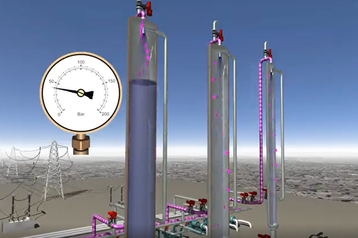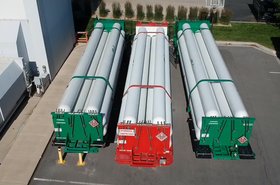Energy Internet Corporation (EIC), a startup aiming to get long term renewable energy to data centers, has joined up with industrial process firm Lummus Technology to use compressed air for energy storage.
The partnership aims to use compressed and liquid air to store surplus renewable energy which will then be available for use when renewable sources like solar and wind power are not delivering energy. EIC provides the software to manage power systems, while EIC is handling the process technology, as part of its "Green Circle" program designed to support energy transition and a circular economy.
Under pressure
EIC's plan, outlined in a DCD event in April involves using compressed air as a storage medium. It is possible to store many GWh of energy in underground reservoirs such as depleted oil and gas wells, said EIC founder Shankar Ramamurthy: "Sub surface reservoirs like depleted oil and gas reservoirs are the best assets, because they have all the pipelines already in place. Oil and gas companies can really start leveraging their assets to beautifully get into clean energy."
“We are thrilled to partner with EIC, and venture into technology applications that provide carbon-free, non-lithium storage that can power data centers and other users where reliability is crucial," said Leon de Bruyn, CEO of Lummus. "This expands Lummus’ portfolio, diversifying from traditional fossil-derived feeds while applying the process and equipment technology and design capabilities that have made us so successful for decades."
Lummus’ subsidiary Green Circle LLC will be the exclusive process technology and engineering partner to EIC and will be responsible for providing studies, engineering, equipment modules, and technical services. Green Circle is a business entity established by Lummus to offer sustainable solutions including converting plastic waste to value-added products; production of chemicals and fuels from biomass; and decarbonization of refinery and petrochemical assets.
Underground reservoirs are accessible from 80 percent of the US today, said Ramamurthy. In the shorter term, it is possible to store energy solely above ground, by compressing the air further and liquifying it - although this incurs an energy cost when the liquid is turned back into a gas. Liquifucation equipment can also be more expensive.




